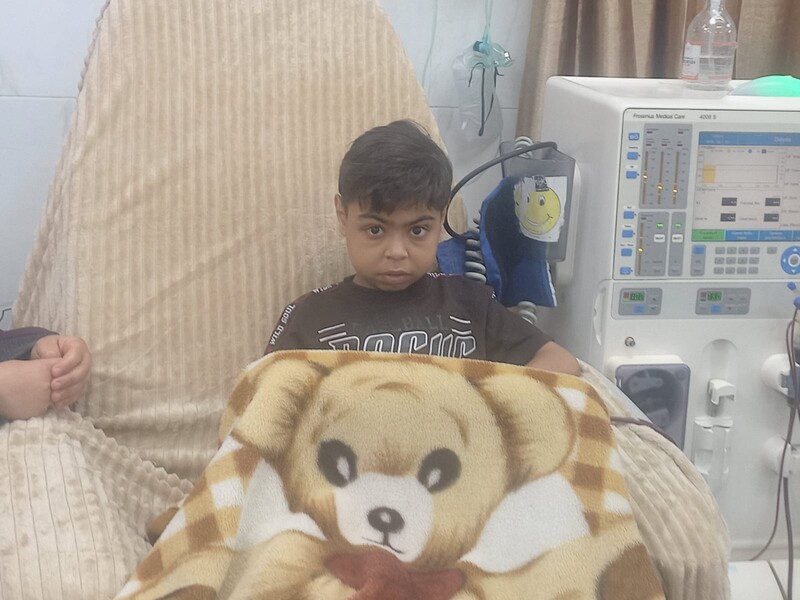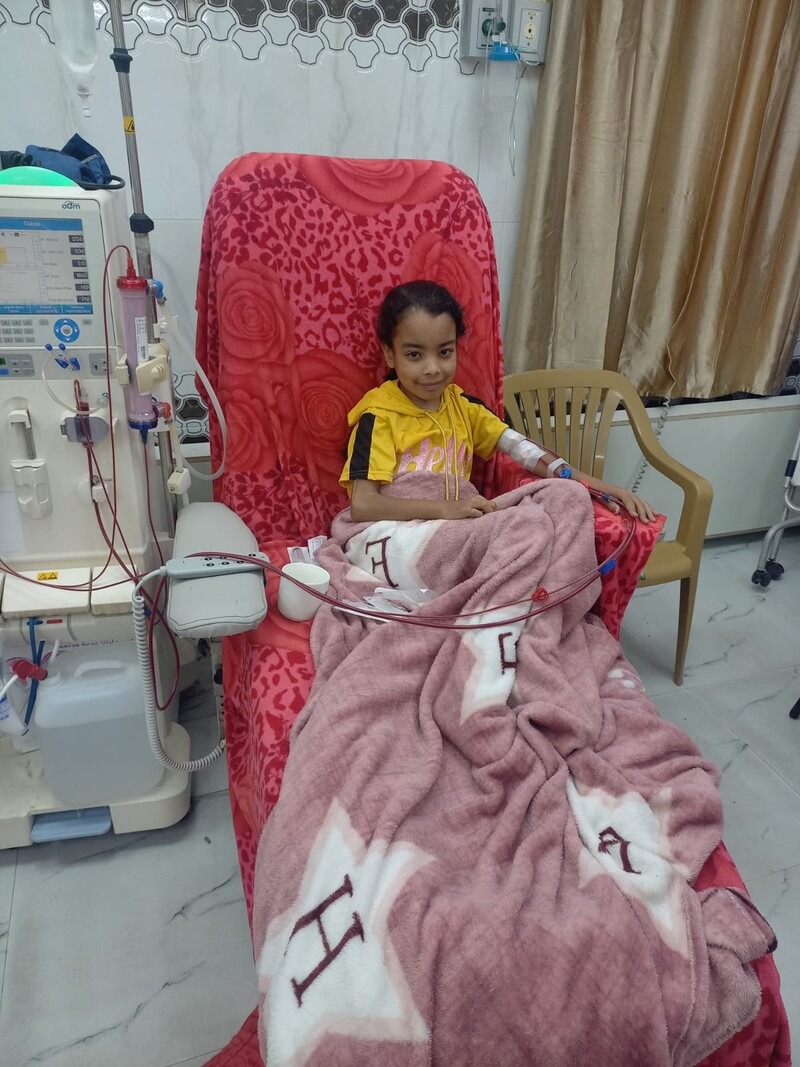The Electronic Intifada 31 July 2023

Naseem is among the children being treated for kidney issues at al-Rantisi hospital.
Naseem loves football.
A huge fan of Argentina’s Lionel Messi, Naseem used to play everywhere he could: at school, on the street, for a local club.
Sadly, he has not been able to even take part in kickarounds lately. Because of his illness, the 10-year-old fears that he may have to give up his beloved game.
Naseem’s kidneys are not functioning properly and he has to follow an extremely limited diet. A transplant has been recommended but so far it has not been possible to arrange one.
“Why am I not like my brothers and sisters?” he asked. “They can eat and drink whatever they want. Why can’t I?”
Naseem is receiving treatment for kidney complaints at al-Rantisi hospital in Gaza City.
While the hospital provides dialysis and some medicines free of charge, Naseem’s treatment sets his family back almost $100 per month.
The bills put the family under considerable strain. Nassem’s father is in prison over unpaid debts.
Staff at al-Rantisi – the only hospital in Gaza providing children with dialysis – do their best to take care of kidney patients such as Naseem. Yet the complete blockade to which Gaza has been subjected for 16 years now means that they cannot provide an adequate service.
Gaza’s health ministry warned recently that al-Rantisi hospital is in dire need of tubes for dialysis machines, as well as other essential equipment. The health ministry stated, too, that Israel had blocked camera technology used in tests on kidney patients from entering Gaza for most of the past two years.
“Inhuman conditions”
Dr. Nabil Ayad heads the nephrology department at al-Rantisi hospital.
“Being a doctor is basically a humanitarian job,” he said. “But in Gaza, we doctors work under inhuman conditions. I am always exhausted, physically and emotionally. My heart aches for every mother who sees her child suffering.”
His colleague Dr. Muhammad al-Anqar noted that shortages of medicines have forced the hospital into giving lower doses than those recommended internationally.
Gaza’s health ministry reported recently that hospitals in Gaza are working at half their capacity. About 40 percent of medicines and more than 30 percent of medical supplies are no longer in stock.
“Some patients need medicine three times a day,” al-Anqar said. “But we can only give them once.”
Woroud, 14, is another child being treated at al-Rantisi hospital.
She needs medicines to aid calcium absorption and for other purposes that are currently unavailable in Gaza.
Her mother – known as Um Muhammad – is distressed at Woroud’s ill-health.
Woroud is Arabic for flowers. “My flower is no longer blooming,” her mother said.
Both Woroud and her father require dialysis for kidney problems.
“My three children and my husband are sick,” her mother said. “It’s very difficult. Nobody helps me. I have to do everything myself.”
“Nightmare”
Tala, 13, has maintained a strong sense of humor despite being unwell for a number of years. Her favorite subject at school is English and she hopes that one day she will be a language teacher.
“I have traveled a lot,” she joked. “To the next neighborhood.”

Tala
As her mother is busy looking after her younger siblings, Tala’s sister Marwa frequently accompanies her when going to the hospital.
“I’m her elder sister and second mother,” Marwa said.
Aseel, also 13, had to stop attending school because of her illness.
“Dialysis takes hours,” her father Mahmoud said. “Aseel spends that time watching cartoons on the phone and trying to take her mind off things. After the dialysis, she is very tired.”
Maher, 13, has lived far longer than his medical team expected.
After his weight started falling, he was diagnosed with a kidney problem when he was just 5 months old. A doctor predicted he would be dead within the following six months.
Despite defying expectations, Maher remains ill. His mother brings him to al-Rantisi hospital for dialysis three times a week.
So far it has not been possible to arrange a transplant for Maher.
“I got married at 16 and now I am 24,” his mother – known as Um Hafez – said. “I have spent what should have been the best years of my life in the hospital. I just hope this nightmare will end soon.”
Hanin A. Elholy is a researcher, writer and translator based in Gaza.
Additional reporting by Tasneem Eholy.





